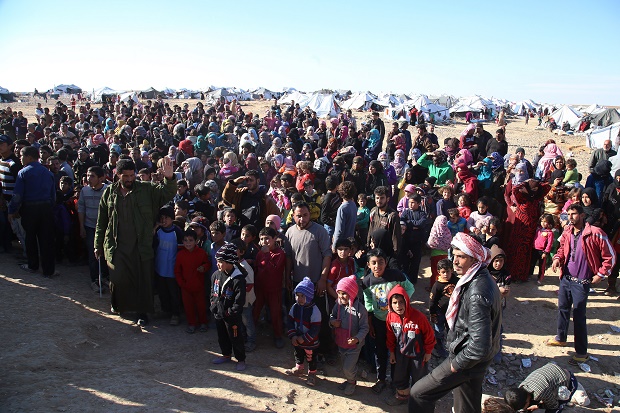LONDON, United Kingdom—The British government announced £1.2 billion (1.6 million euros, $1.74 billion) in aid for war-torn Syria and its neighbors on Thursday, ahead of a donors’ conference in London.
“More money is needed to tackle this crisis and it is needed now,” Prime Minister David Cameron said in a statement announcing the pledge, which will fund education, jobs and humanitarian relief in Syria, Jordan, Lebanon and Turkey.
READ: Time for action, not words on aid to Syria refugees—Oxfam
The promise amounts to an extra £1.2 billion, to be spent between 2016 and 2020, to address “the world’s biggest humanitarian crisis,” Cameron’s office said. Britain has already agreed to spend £1.12 billion on the region.
It comes as world leaders are due to gather in London to try to raise $9 billion for the millions of Syrians affected by five years of civil war and to address an acute refugee crisis.
The conflict has forced 4.6 million Syrians to seek refuge in nearby countries—Jordan, Lebanon, Turkey, Iraq and Egypt—while hundreds of thousands have journeyed to Europe in the region’s biggest migration crisis since World War II.
“With hundreds of thousands of people risking their lives crossing the Aegean or the Balkans, now is the time to take a new approach to the humanitarian disaster in Syria,” Cameron said.
Donors will have to dig deeper than the last conference in 2015, when UN agencies asked for $8.4 billion to help Syria and its neighbors, but raised just $3.3 billion.
The organizers have already agreed that participants should at least “double” their contributions from last year.
Aid from the conference will be targeted at helping the economies of Syria’s neighbors, creating jobs for refugees and citizens of their host countries, according to the release.
READ: UN, NGOs demand end to Syria ‘carnage’
It will also go towards food, shelter, medical care and rebuilding health facilities in Syria itself.
Speaking ahead of the conference, Norway’s Minister for Foreign Affairs Borge Brende said there was a “moral imperative, human imperative” to act.
“It’s a lost generation if we’re not successful tomorrow,” Brende said.
